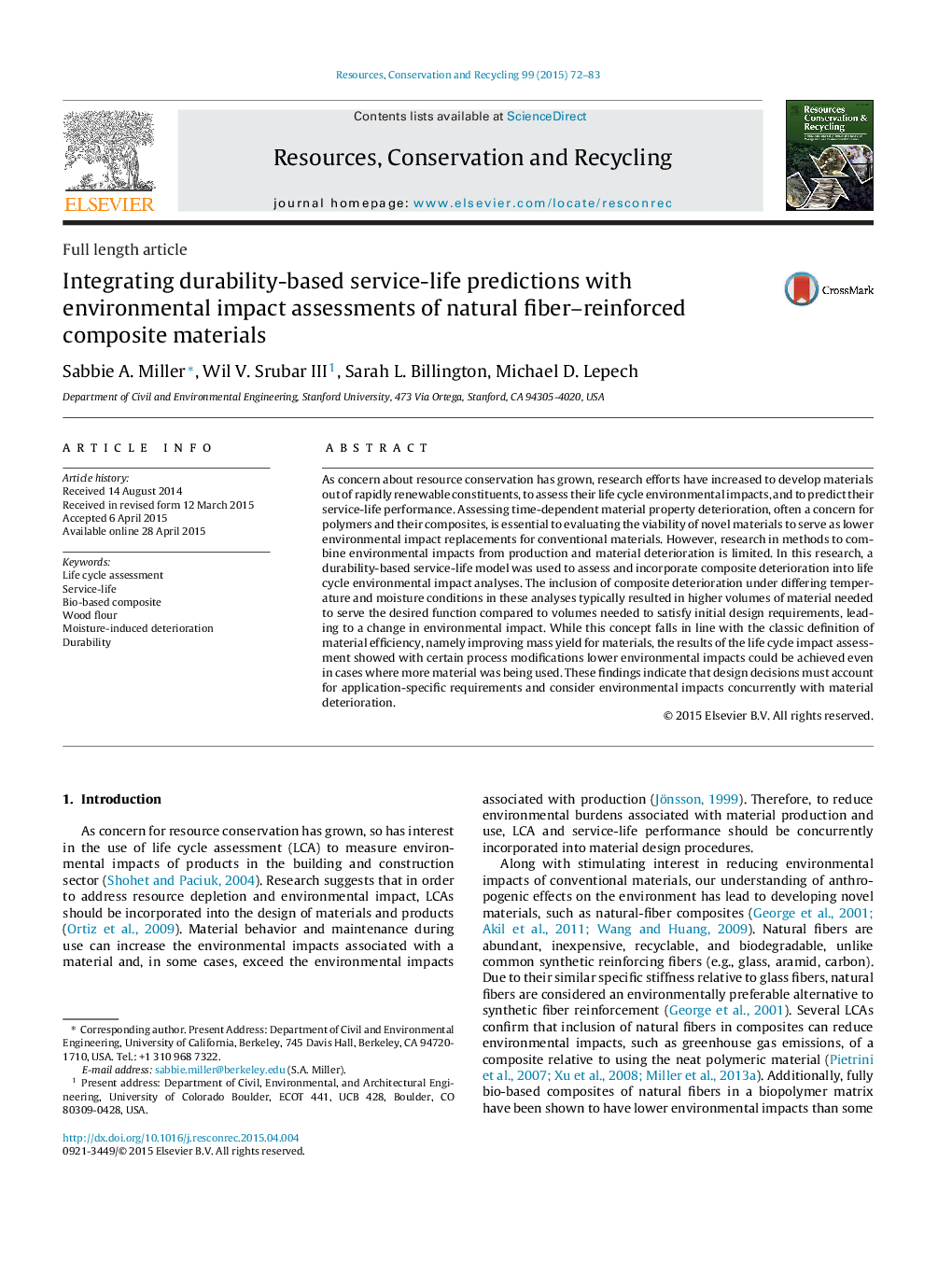| Article ID | Journal | Published Year | Pages | File Type |
|---|---|---|---|---|
| 1062795 | Resources, Conservation and Recycling | 2015 | 12 Pages |
•Durability must be considered in selecting and comparing novel materials.•Environmental impact and durability are concurrently examined in material analysis.•Material service-life is application and site specific.•Bio-based composites have the potential to offer low impact material alternatives.
As concern about resource conservation has grown, research efforts have increased to develop materials out of rapidly renewable constituents, to assess their life cycle environmental impacts, and to predict their service-life performance. Assessing time-dependent material property deterioration, often a concern for polymers and their composites, is essential to evaluating the viability of novel materials to serve as lower environmental impact replacements for conventional materials. However, research in methods to combine environmental impacts from production and material deterioration is limited. In this research, a durability-based service-life model was used to assess and incorporate composite deterioration into life cycle environmental impact analyses. The inclusion of composite deterioration under differing temperature and moisture conditions in these analyses typically resulted in higher volumes of material needed to serve the desired function compared to volumes needed to satisfy initial design requirements, leading to a change in environmental impact. While this concept falls in line with the classic definition of material efficiency, namely improving mass yield for materials, the results of the life cycle impact assessment showed with certain process modifications lower environmental impacts could be achieved even in cases where more material was being used. These findings indicate that design decisions must account for application-specific requirements and consider environmental impacts concurrently with material deterioration.
